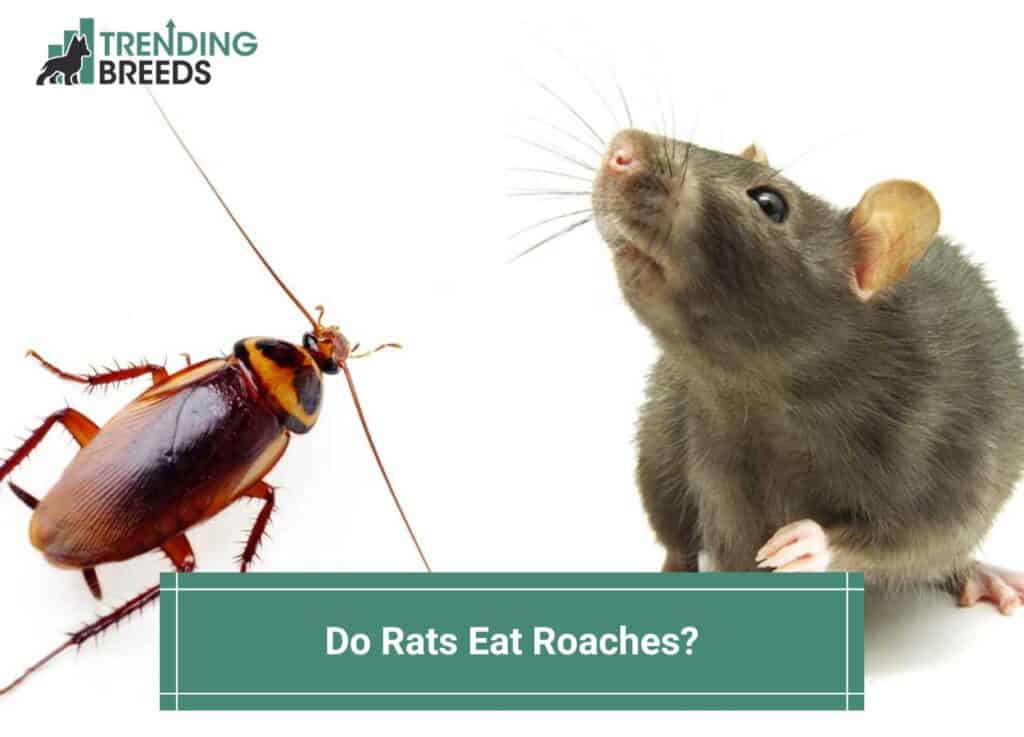
Rats and roaches are some of the most common inhabitants (often unwelcome) in many households. Although they may seem unrelated, you may wonder if rats will eat cockroaches. In this article, we answer this question and more.
Rats do eat roaches. They are full of nutrients that rats need to survive in the wild. However, this food is associated with many risks, such as diseases and pathogens, allergic reactions, nutritional deficiencies, attracting other pests, and more.
Keep reading as we discuss this answer in more detail. In general, rats do it each roaches, but not recommend that you feed it to them regularly.
Other articles you would like: Can Rats Eat Cat Food? and Can Rats Eat Mango?
Table of Contents
Do Rats Eat Roaches?
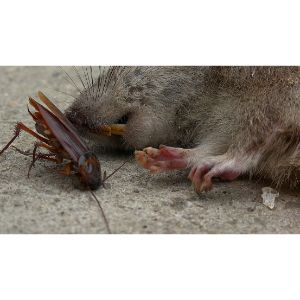
Rats will eat just about anything. This includes insects such as roaches. While it may seem unappealing to humans, roaches can be a valuable source of protein for rats and other animals.
In the wild, rats and other rodents will often eat a wide variety of insects as part of their diet.
Roaches are rich in protein and other essential nutrients, making them a valuable food source for rats. They are high in protein, fat, vitamins, and minerals like calcium, magnesium, and zinc that rats need to stay healthy.
Additionally, they are an excellent source of energy, which can be especially important for young rats that are still growing.
Rats are known to be able to adapt to different environments, and they are able to forage for food in many different types of habitats.
Roaches are commonly found in many environments including homes, restaurants, and buildings, providing a readily available food source for rats.
Risks of Feeding Rats Cockroaches
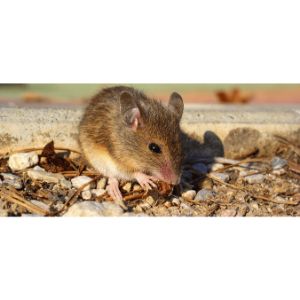
Feeding cockroaches to rats may seem like an easy and convenient way to provide them with a source of protein and other essential nutrients.
However, there are several risks associated with feeding cockroaches to rats that should be considered before making this decision.
Disease and Pathogens
Some species of cockroaches are known to carry harmful pathogens and diseases that can be transmitted to rats.
For example, the German cockroach is known to carry the bacteria that cause food poisoning and can carry the viruses that cause disease in humans.
These pathogens can be transmitted to rats through the cockroaches they eat and can lead to serious health problems.
Therefore, it’s important to identify the species of cockroaches and avoid feeding them to your rats if they are known to be harmful.
Allergic Reactions
Some rats may have an allergic reaction to cockroaches, which can cause symptoms such as sneezing, itchy skin, and irritated eyes.
These reactions can be severe, and in some cases, they can be life-threatening. It’s important to observe your rats for any signs of an allergic reaction after introducing cockroaches to their diet.
Unhealthy Obsession
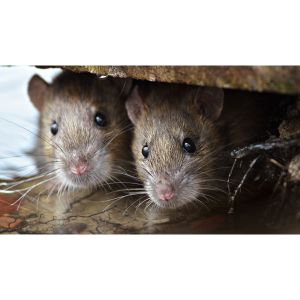
Feeding cockroaches to your rats could also lead to an unhealthy obsession for these insects, instead of eating a balanced diet.
Rats may become fixated on eating cockroaches to the point that they refuse to eat other foods, which can lead to nutritional deficiencies.
Attracting Other Pests
Feeding cockroaches to your rats could also attract other pests to your home or place of residence.
Cockroaches can reproduce quickly and can quickly become a problem if they are allowed to proliferate. Once cockroaches are established in an area, it can be very difficult to get rid of them.
Nutritional Deficiencies
While cockroaches are a source of protein, they are not a balanced diet and do not provide all the necessary nutrients that rats need.
Rats require a balanced diet that includes a variety of fruits, vegetables, and other types of food to meet all their nutritional needs.
How to Get Rid of Cockroaches
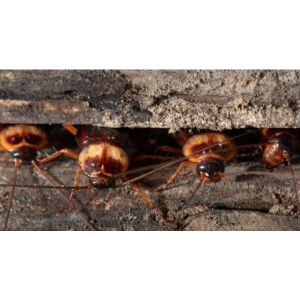
Cockroaches are one of the most common household pests, and they can be difficult to get rid of once they’ve established themselves in your home.
These insects are known for their ability to reproduce quickly and for their ability to adapt to a wide range of environments, making them a challenging pest to eliminate.
However, with the right approach and techniques, it is possible to effectively get rid of cockroaches in your home.
Sanitation
One of the most effective ways to get rid of cockroaches is to practice good sanitation in your home.
400;”>This includes keeping your home clean and free of food debris, vacuuming and dusting regularly, and cleaning up spills and crumbs as soon as they happen.
Additionally, it’s essential to properly store food, especially food items that are attractive to cockroaches like sugary or starchy foods and keeping the kitchen clean and free of dirty dishes.
Cockroaches are attracted to food sources, and the less food available, the less attractive your home will be to them.
Seal Entry Points
Cockroaches are able to enter your home through small cracks and crevices, so it’s important to seal these entry points to prevent them from entering.
This includes sealing gaps around windows and doors, fixing leaks, and filling any other small cracks or crevices in your home.
By sealing entry points, you can make it more difficult for cockroaches to enter your home and limit their ability to establish themselves inside.
Use Bait And Traps
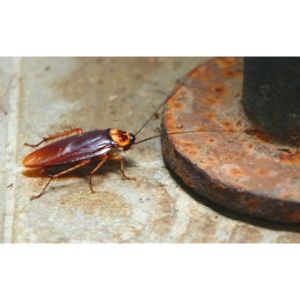
Cockroach bait and traps are an effective way to get rid of cockroaches. Bait is placed in areas where cockroaches are known to congregate, and the cockroaches will feed on the bait, which is laced with a poison that will eventually kill them.
Traps, on the other hand, are designed to capture cockroaches and keep them contained, preventing them from reproducing.
These methods are great for identifying cockroach hot spots and can be a great addition to your overall cockroach control strategy.
Use Pesticides
If you find that you have a significant cockroach infestation, it may be necessary to use pesticides. There are various types of pesticides available, including sprays, gels, and powders.
It’s important to choose the right type of pesticide for your situation and to follow the instructions carefully. It’s also important to note that pesticides can be harmful to children and pets, so it’s important to take precautions when using them.
Call an Exterminator
In some cases, the infestation may be too severe for you to handle on your own. In these cases, it’s best to call an exterminator who has the tools, experience, and knowledge to effectively eliminate the infestation.
A professional exterminator can identify the specific species of cockroach that’s present in your home and choose the right treatment to eliminate it.
How Fast Do Cockroaches Reproduce?
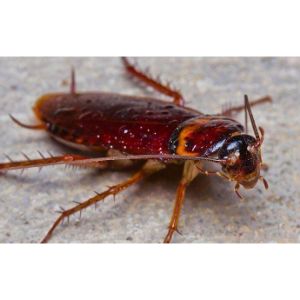
Cockroaches are known for their ability to reproduce quickly, which can make controlling their population a challenging task. Their high reproduction rate is considered one of the reasons why they are such a prevalent pest species.
The reproduction cycle of cockroaches is relatively short, with females reaching sexual maturity in as little as just two months.
They have a high reproductive rate and can produce multiple egg cases, called ootheca, that can contain up to 50 eggs each. Cockroaches can produce multiple egg cases during their lifetime, and they can produce new eggs every few weeks.
Different species of cockroaches have different reproductive rates and life cycles. For example, the German cockroach, which is a common household pest, can produce up to eight egg cases in a lifetime, each containing 30 to 40 eggs.
This means that a single female German cockroach can produce up to 320 offspring during her lifetime.
Other cockroach species, like the American cockroach, can live up to a year and can produce up to 150 offspring during their lifetime.
The Oriental cockroach, however, has a longer life cycle of up to two years and can produce up to 800 offspring during their lifetime.
Cockroaches also have a high survival rate, with many of their eggs hatching successfully. This means that once a cockroach population has established itself, it can grow very quickly.
Common Cockroach Predators
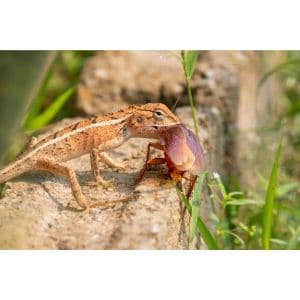
Cockroaches are a common pest species, and they have a variety of natural predators that can help keep their population in check.
Understanding these predators and how they interact with cockroaches can be helpful in controlling cockroach populations.
Birds
Some species of birds, such as chickens, ducks, and guinea fowl, are known to eat cockroaches.
They are particularly fond of the American cockroach, which is a common outdoor species. These birds can be used as a natural form of pest control in agricultural settings or in backyard chicken coops.
Lizards and Geckos
Lizards, like geckos, are known to feed on cockroaches. They are particularly effective at controlling German cockroaches, which are a common household pest.
Geckos are particularly effective at controlling cockroach populations because they are able to climb walls and ceilings and can reach areas where cockroaches are likely to hide.
Spiders
Spiders are also known to feed on cockroaches. They are particularly effective at controlling cockroach populations. Spiders like Huntsman Spiders, Wolf Spiders and Brown Recluse Spiders can feed on cockroaches.
Ants
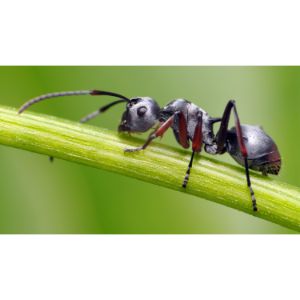
Some species of ants are known to feed on cockroaches. For example, the Pharaoh ant is known to feed on German cockroaches. They can also disrupt cockroach populations by attacking the nests and colonies.
Centipedes
Centipedes are also known to feed on cockroaches. They are particularly effective at controlling outdoor cockroach populations, as they can reach difficult places where other natural predators can not.
Certain Species of Beetles
Some species of beetles, such as the Rove beetle, can feed on cockroaches. They can be especially helpful in controlling outdoor cockroach populations, as they can capture cockroaches that are hiding in leaf litter, soil, or other organic matter.
Parasitic Wasps
Parasitic wasps like the Emerald Cockroach Wasp (Ampulex compressa) can infect and control cockroach populations.
The female wasp stings the cockroach at specific points on the thorax and abdomen causing the cockroach to become docile.
The wasp then leads the cockroach to its burrow and lays an egg on the cockroach. The wasp larvae develop by feeding on the cockroach.
Conclusion For “Do Rats Eat Roaches”

To summarize, rats can eat cockroaches, as they often do. However, keeping the risks in mind, you may want to reconsider whether feeding or allowing your rat to feed on cockroaches is really worth it at the end of the day.
You will also like:
You can learn more about rats by watching “3. Rat care – Bonding with Rats” down below:




